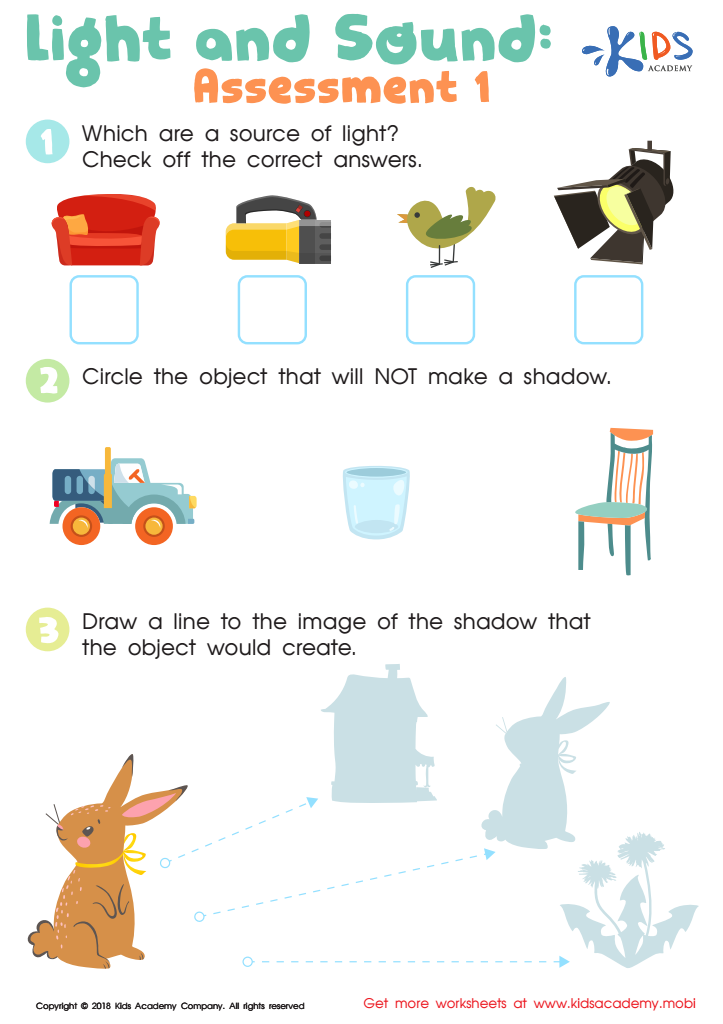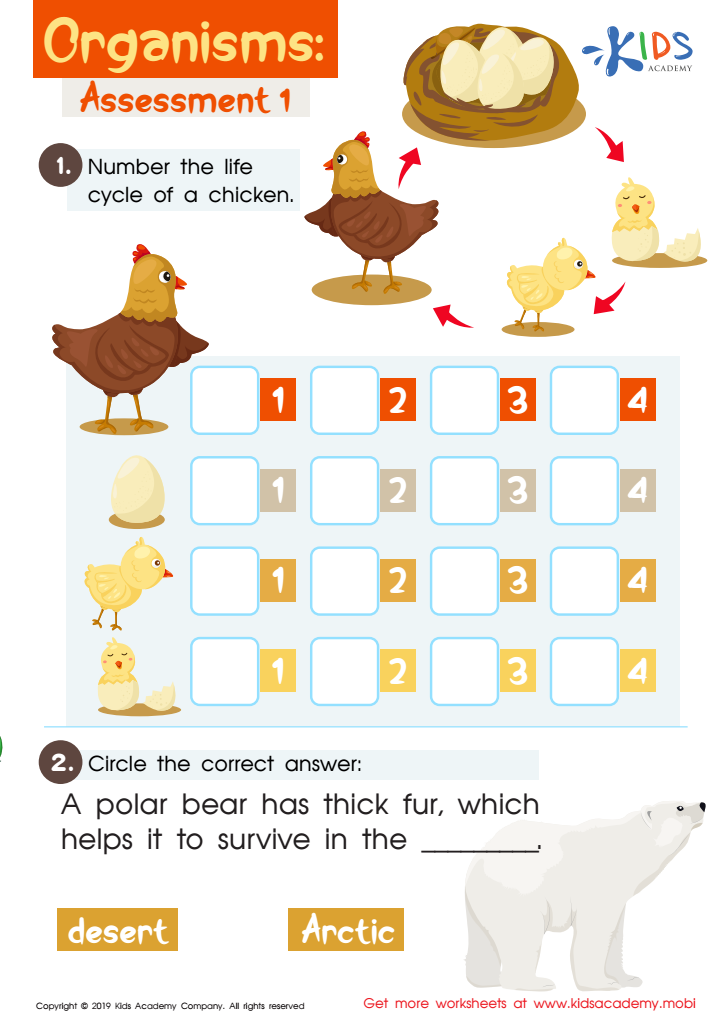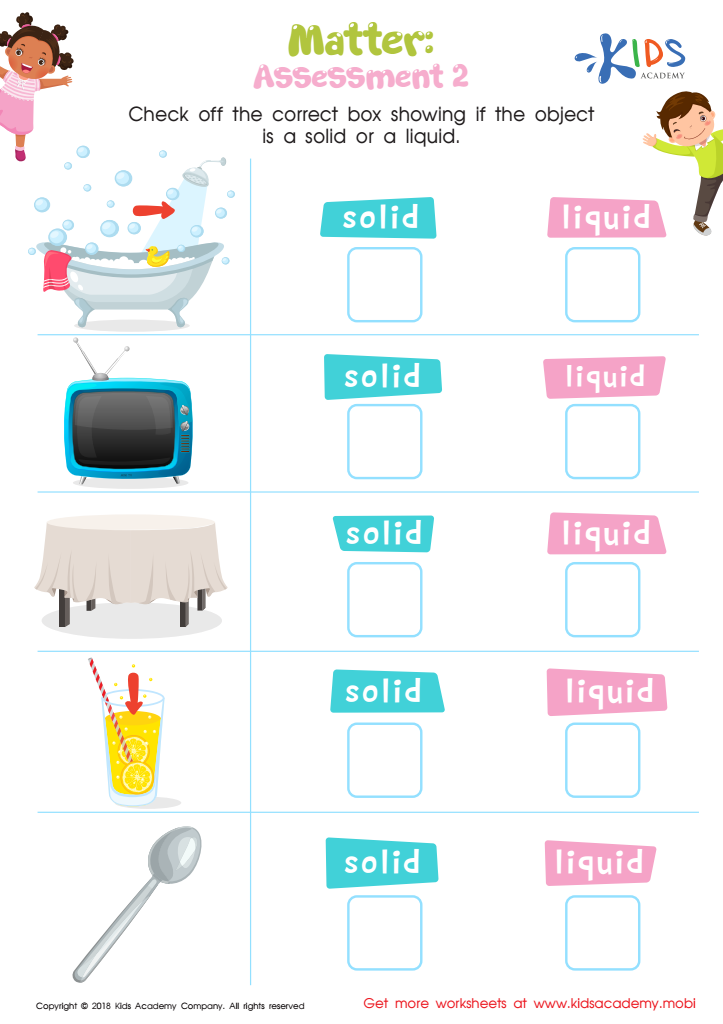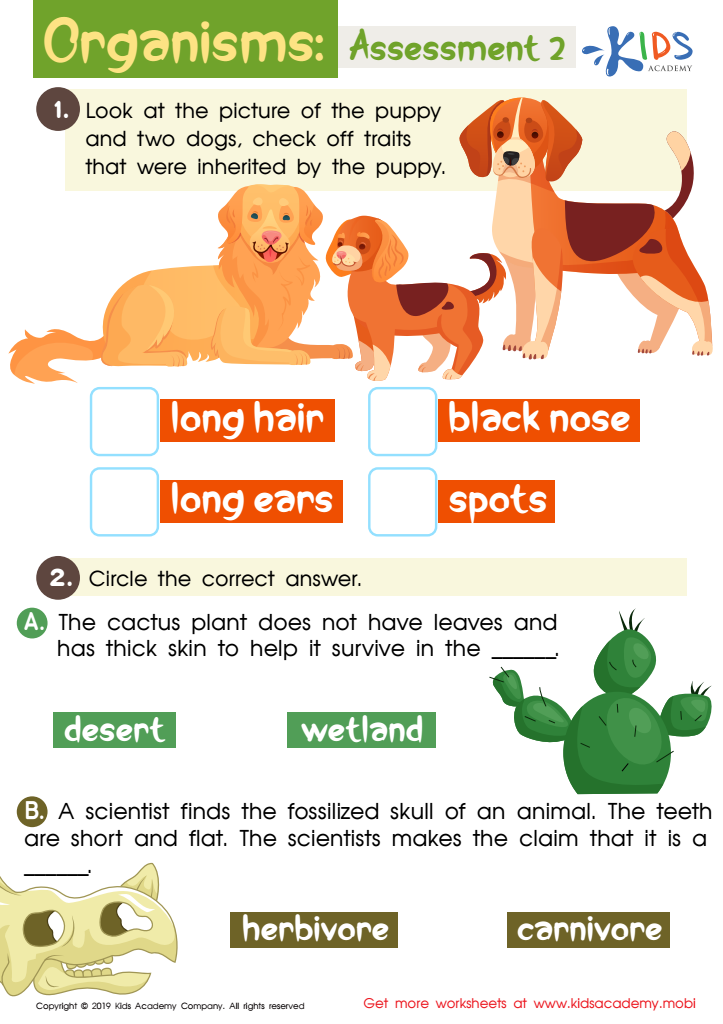Science Worksheets Activities With Answers for Ages 7-9
12 filtered results
-
From - To
Discover engaging science worksheets designed specifically for kids ages 7-9! Our activities encourage young learners to explore fundamental concepts through fun and interactive exercises. Each worksheet includes an answer key, enabling students to check their work and enhance their understanding of topics like Earth science, biology, and physical science. Ideal for home or classroom use, these worksheets promote critical thinking and reinforce knowledge. With a variety of tasks—from matching terms to solving puzzles—your child will enjoy a hands-on approach to learning science. Printable and easy to use, these resources make studying enjoyable while preparing children for future scientific exploration!


Matter: Assessment 1 Worksheet


Light and Sound: Assessment 1 Worksheet


Organisms: Assessment 1 Worksheet


Space: Assessment 1 Worksheet


Ecosystems: Assessment 1 Worksheet


Light and Sound: Assessment 2 Worksheet


Animals and Plants: Assessment 2 Worksheet


Matter: Assessment 2 Worksheet


Ecosystems: Assessment 2 Worksheet


Space: Assessment 2 Worksheet


Organisms: Assessment 2 Worksheet


Animals and Plants: Assessment 1 Worksheet
Science activities for children aged 7-9 are vital for nurturing curiosity and critical thinking skills. At this age, children are naturally inquisitive, and engaging them in hands-on science experiments can enhance their love for learning and understanding of the world around them. These activities help to foster a deeper comprehension of scientific concepts, promoting problem-solving skills as students hypothesize, experiment, and analyze results.
Additionally, science activities encourage collaboration and communication, as children often work in groups or pairs. This teamwork not only builds social skills but also enhances their ability to discuss ideas and share knowledge, a core competency for future academic and professional success.
Incorporating science activities with answers allows educators and parents to provide immediate feedback, helping children to connect the dots between theory and practice. It further enables them to internalize information more effectively. Such experiences can also lay the foundation for future interests in STEM (Science, Technology, Engineering, and Mathematics) fields, driving innovation and progress.
Ultimately, prioritizing science activities helps children develop a passion for inquiry, creativity, and exploration—essential traits that will serve them well throughout their educational journey and beyond. Therefore, it’s crucial for both parents and teachers to actively engage children in these enriching experiences.

 Assign to My Students
Assign to My Students















